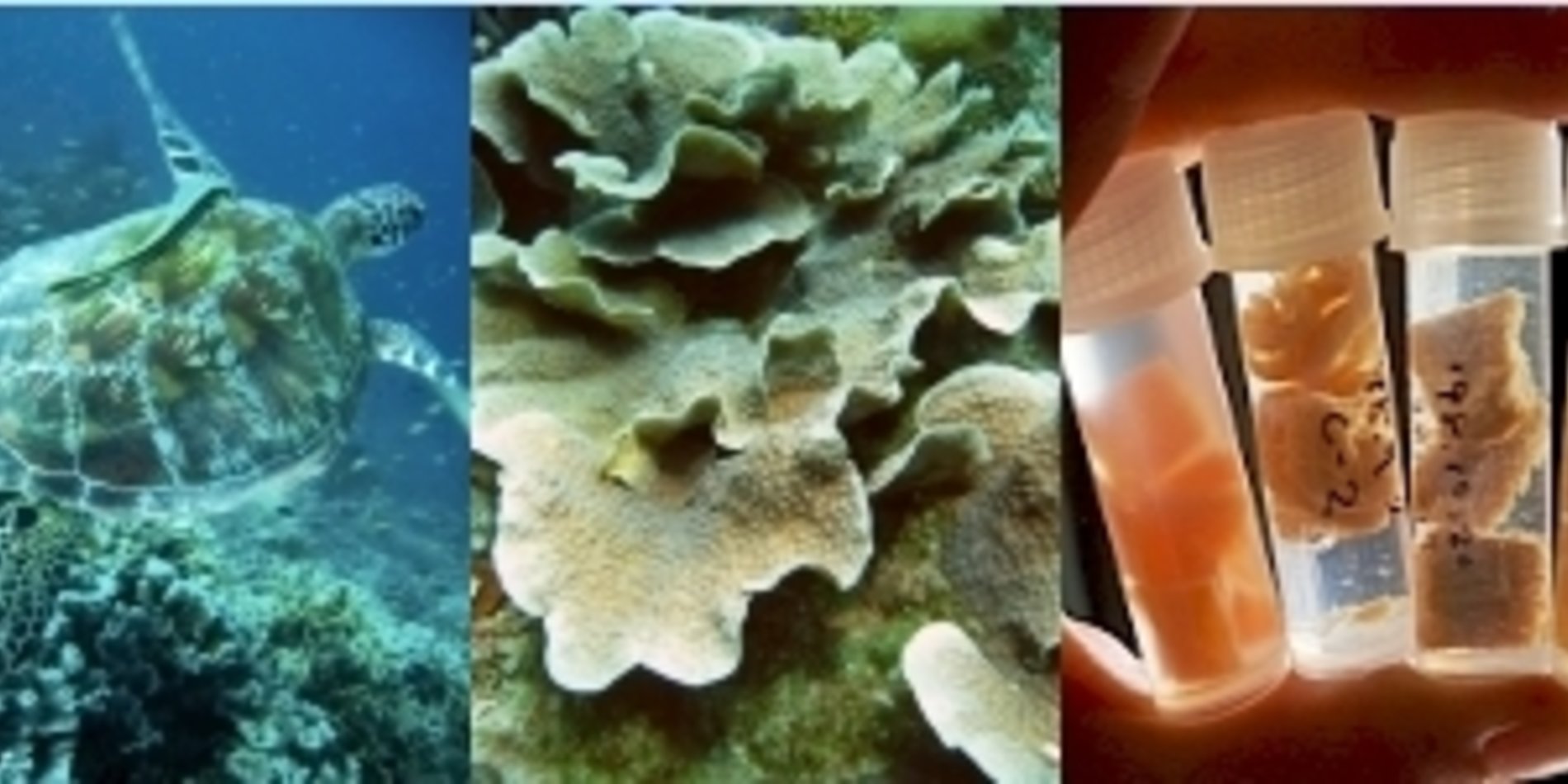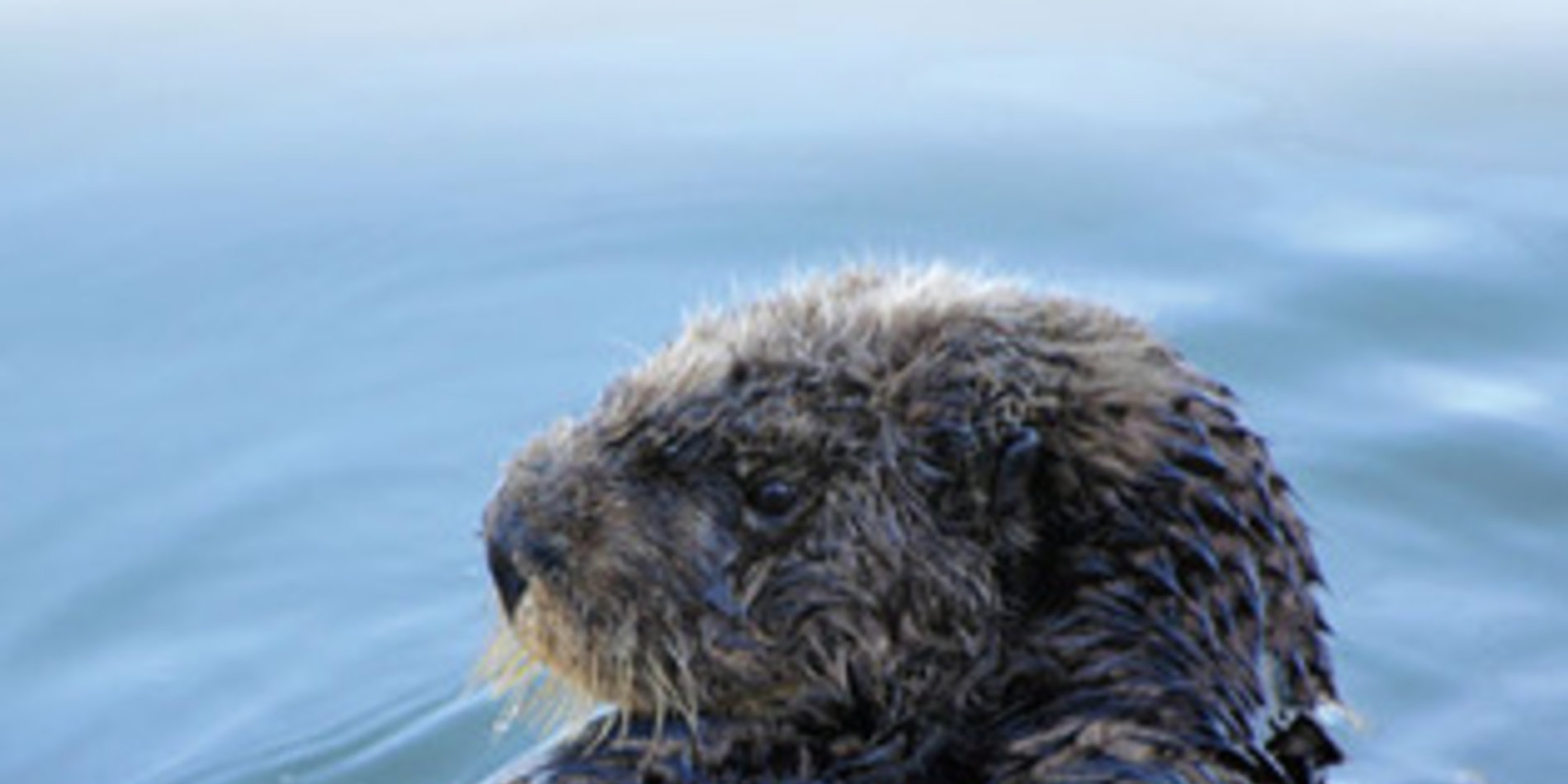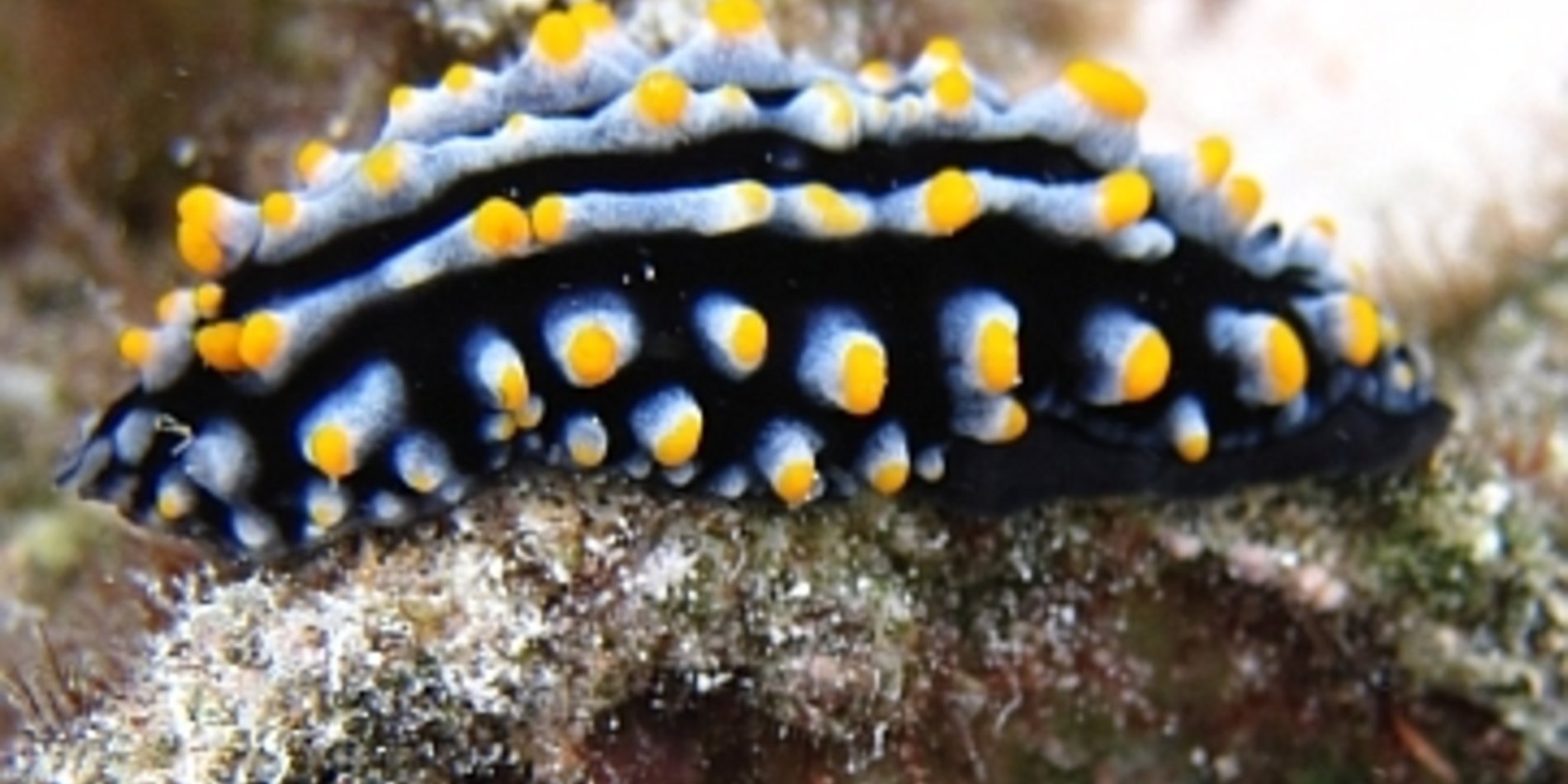Main content start

We're interested in ecological, evolutionary, and conservation questions related to marine (and sometimes terrestrial) organisms and ecosystems. We use evolutionary genetics and molecular ecology techniques, and our fieldwork takes us all around the world. Currently, we're studying coral diversity, the adaptive potential of corals in response to climate change, the movement of organisms between marine reserves, genetic changes in abalone in response to environmental conditions, local adaptation in sea urchins, invasive species, and historic population sizes in whales.
Featured Image - Nudibranch by Lupita Ruiz-Jones





